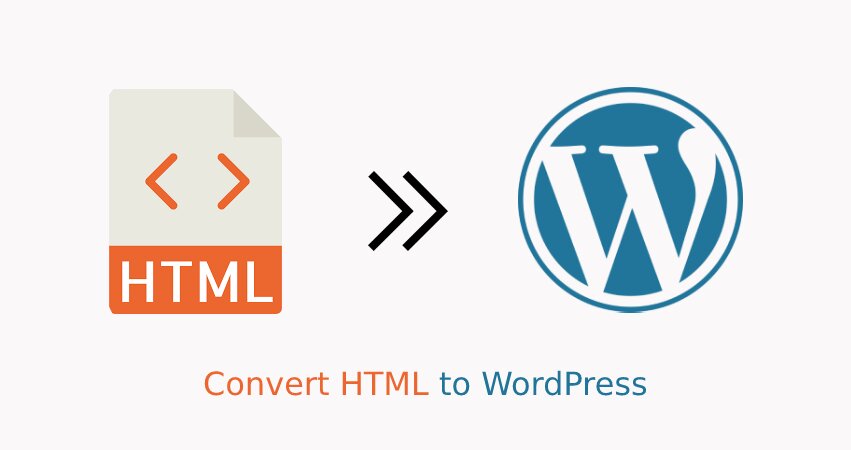@letsuser | Posted on | science-technology
How Converting HTML to WordPress Can Improve SEO?
| Posted on
Changing an HTML site to WordPress with help from an IT Consulting Company can improve SEO by using WordPress's strong features and plugins made for optimization. WordPress provides mobile-friendly, responsive designs, faster page loading with light themes, and advanced SEO tools like Yoast or Rank Math to manage keywords, meta tags, and sitemaps. It also allows easy content updates and SEO-friendly URL structures, which help with site indexing and rankings. An experienced IT consulting company helps move your site smoothly. They make sure your site's SEO works well and keep its online presence strong.
0
0 Comment
| Posted on
Converting an HTML website to WordPress is not just a trend; it’s a strategic move that can significantly enhance your site's SEO performance. In this blog post, we’ll explore how this transition can lead to better search engine visibility and overall user experience.
Understanding the Basics of HTML and WordPress
To appreciate the benefits of converting from HTML to WordPress, it’s essential to understand the fundamental differences between static HTML sites and dynamic WordPress platforms. HTML websites are typically hard-coded, meaning any changes require manual editing of the code. In contrast, WordPress is a content management system (CMS) that allows for easy updates and management of content without needing technical expertise.

SEO Friendliness of WordPress
WordPress is inherently designed to be SEO-friendly, making it easier to optimize your site for search engines.
1. Built-in SEO Features
One of the standout features of WordPress is its built-in SEO capabilities. Unlike static HTML sites, which may require extensive coding for basic SEO elements, WordPress allows you to easily manage permalinks, meta tags, and header tags directly from the dashboard.
2. Plugin Advantage
Additionally, popular SEO plugins like Yoast SEO and All in One SEO Pack provide users with tools to optimize their content effectively. These plugins offer real-time analysis and suggestions, helping you improve your on-page SEO without needing a deep understanding of search engine algorithms.
Improved Site Structure and Navigation
A well-structured site is crucial for SEO, and WordPress excels in this area.
1. Hierarchical Organization
WordPress allows for better categorization and tagging of content, which helps search engines understand your site’s structure. This hierarchical organization not only enhances user experience but also makes it easier for search engines to crawl your site.
2. User-Friendly Navigation
Intuitive navigation is vital for both users and search engines. With WordPress, you can create custom menus that guide visitors through your site seamlessly. A well-organized navigation structure reduces bounce rates and encourages users to explore more pages, positively impacting your SEO.
Mobile Responsiveness
With mobile usability being a ranking factor, WordPress themes often come with responsive designs.
1. Responsive Themes
Converting to WordPress ensures your site looks great on all devices. Many themes are designed with mobile responsiveness in mind, automatically adjusting layout and content based on screen size. This adaptability is crucial as more users access websites via smartphones and tablets.
2. Impact on Rankings
Search engines like Google prioritize mobile-friendly sites in their rankings. By switching to a responsive WordPress theme, you enhance your chances of ranking higher in search results.
Faster Loading Times
Page speed is a critical aspect of SEO, and WordPress offers tools to enhance performance.
1. Caching Plugins
One significant advantage of WordPress is the availability of caching plugins such as WP Super Cache or W3 Total Cache. These tools help improve loading times by storing static versions of your pages, reducing server load and speeding up delivery to users.
2. Optimized Media Management
WordPress simplifies image optimization through built-in features that allow you to compress images without sacrificing quality. Fast-loading images contribute directly to a better user experience and improved SEO rankings.
Content Management Made Easy
Managing content in WordPress is far more efficient than in static HTML sites, which can positively affect SEO.
1. Ease of Updates
With a user-friendly interface, updating content in WordPress is quick and straightforward. Regularly refreshing your website with new articles or blog posts keeps it dynamic—an essential factor for maintaining good SEO rankings.
2. User Roles and Collaboration
WordPress also supports multiple user roles, allowing teams to collaborate effectively on content creation. This collaborative approach ensures that content quality remains high, which is crucial for engaging your audience and improving SEO metrics.
Enhanced Security Features
A secure website is important for SEO, and WordPress provides robust security options.
1. Regular Updates
Keeping your platform updated is vital for maintaining security against vulnerabilities. WordPress regularly releases updates that include security patches; staying current helps protect your site from potential threats that could harm its reputation and rankings.
2. Security Plugins
There are numerous security plugins available for WordPress that enhance protection against malware and hacking attempts. Implementing these tools can safeguard your site while contributing positively to its overall credibility—a factor that search engines consider when ranking sites.
Community Support and Resources
The vast community surrounding WordPress offers invaluable resources for improving SEO.
1. Forums and Tutorials
One of the greatest advantages of using WordPress is the extensive community support available through forums, blogs, and tutorials. Whether you’re looking for advice on best practices or troubleshooting issues, there are countless resources at your disposal.
2. Continuous Improvement
The community-driven nature of WordPress means that it continually evolves with the latest trends in web development and SEO practices. Staying informed through community updates ensures that you’re always leveraging the best strategies for optimizing your site.
Conclusion
Converting from HTML to WordPress not only modernizes your website but also opens up numerous opportunities for enhancing your SEO strategy. The inherent features of WordPress—ranging from its user-friendly interface to its robust plugin ecosystem—make it an excellent choice for anyone looking to improve their online presence.
0
0 Comment


